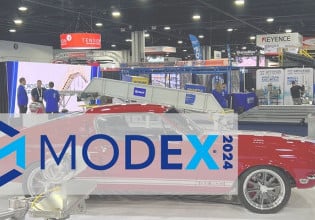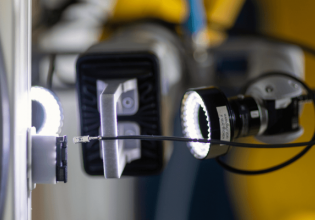Multiple Allen bradley control systems communication with each other on reak time, and exchange data, including ethernet network and two servers operating systems, but the thing that is missing is the master control system, can we call that a DCS????
A master system missing, Three PLCs communicate with each other through ethernet network, is that a DCS
- Thread starter abdouzita103
- Start date
Scroll to continue with content
A quick Google search with the search term 'what is a dcs system' (without the quotation marks) revealed many definitions of a DCS. It's really a very open definition, and marketers and salespeople will always try to use terms and words and abbreviations to try to sell something (even if it's not technically what it's being sold as...).
DCS is a term that started several decades ago, and has been widely used to describe many different types of automation control systems. It's almost a generic term these days, in the way that "car" can be used to describe many different types of automobiles.
For me, DCS has always meant Distributed Control System, and it can be anything from a simple PLC (Programmable Logic Controller) to a dedicated system from one of the big automation control system designers/manfuacturers--there's DeltaV and Foxboro and Yokogawa to name three. Lately, the D in DCS has become very important, in that components of a plant control system are remotely located in different areas of the plant and linked together using one of many protocols ("ethernet" (TCP/IP); CAN (Control Area Network); PROFIBUS; there are LOTS of automation control system protocols) and methods (Ethernet cabling (UTP cables; coaxial cables; fiber optic cables; TSP (twisted, shielded pair) cables; proprietary cabling; etc.). This results in less wiring and cabling required to operate, control and protect a large plant and/or process by linking multiple "remote" controllers together with a few simple wires/cables.
Many times a control system integrator will use multiple PLCs (sometimes linked together, sometimes not) for a process plant (chemical; oil refinery; paint factory; etc.) and refer to it as a DCS. Sometimes as a plant grows individual PLCs are used and then linked together later. Quite often when a large new plant is built one of the larger automated control system manufacturers will be chosen and used as a DCS, or sometimes called a BOP (Balance Of Plant) control system. Sometimes, as a plant grows, smaller control systems will be replaced with a bigger, single control system.
So, yes; three PLCs linked together could be technically called a DCS.
But, without knowing a LOT about the plant you are working or interning at there's not much more we can add. As long as the investors/owners and management of the plant are happy with the way the plant is running and generating profits, whether or not it has a "true" DCS is unimportant.
If you're just starting out in the "business" you will soon come to learn that standards are a really good thing--one reason they're a good thing is because there are so many of them. And, some manufacturers, marketing departments and salespeople, even engineering departments, will choose to interpret some standards a little bit differently than others and use a "real" standard name/term to describe their implementation. (MODBUS comes immediately to my mind when talking about standards, because there are really a LOT of "flavors" of MODBUS which are more or less based on what is, truly, a well-defined standard but some decisions are made sometimes to modify some (seemingly insignificant) part of the standard for one reason or another which can make it VERY DIFFICULT to properly implement when trying to use MODBUS to link controllers from different manufacturers.)
There is a saying in the industrial world: "There are many ways to skin a CAT." (Skinning a CAT refers to disassembling a Caterpillar engine, and there are, indeed, many ways to do that. Assembling a CAT (engine), however, is usually more defined and rigorous....) You will come to learn that words and terms such as DCS can be used to describe a large number of automation control system configurations.
DCS is a term that started several decades ago, and has been widely used to describe many different types of automation control systems. It's almost a generic term these days, in the way that "car" can be used to describe many different types of automobiles.
For me, DCS has always meant Distributed Control System, and it can be anything from a simple PLC (Programmable Logic Controller) to a dedicated system from one of the big automation control system designers/manfuacturers--there's DeltaV and Foxboro and Yokogawa to name three. Lately, the D in DCS has become very important, in that components of a plant control system are remotely located in different areas of the plant and linked together using one of many protocols ("ethernet" (TCP/IP); CAN (Control Area Network); PROFIBUS; there are LOTS of automation control system protocols) and methods (Ethernet cabling (UTP cables; coaxial cables; fiber optic cables; TSP (twisted, shielded pair) cables; proprietary cabling; etc.). This results in less wiring and cabling required to operate, control and protect a large plant and/or process by linking multiple "remote" controllers together with a few simple wires/cables.
Many times a control system integrator will use multiple PLCs (sometimes linked together, sometimes not) for a process plant (chemical; oil refinery; paint factory; etc.) and refer to it as a DCS. Sometimes as a plant grows individual PLCs are used and then linked together later. Quite often when a large new plant is built one of the larger automated control system manufacturers will be chosen and used as a DCS, or sometimes called a BOP (Balance Of Plant) control system. Sometimes, as a plant grows, smaller control systems will be replaced with a bigger, single control system.
So, yes; three PLCs linked together could be technically called a DCS.
But, without knowing a LOT about the plant you are working or interning at there's not much more we can add. As long as the investors/owners and management of the plant are happy with the way the plant is running and generating profits, whether or not it has a "true" DCS is unimportant.
If you're just starting out in the "business" you will soon come to learn that standards are a really good thing--one reason they're a good thing is because there are so many of them. And, some manufacturers, marketing departments and salespeople, even engineering departments, will choose to interpret some standards a little bit differently than others and use a "real" standard name/term to describe their implementation. (MODBUS comes immediately to my mind when talking about standards, because there are really a LOT of "flavors" of MODBUS which are more or less based on what is, truly, a well-defined standard but some decisions are made sometimes to modify some (seemingly insignificant) part of the standard for one reason or another which can make it VERY DIFFICULT to properly implement when trying to use MODBUS to link controllers from different manufacturers.)
There is a saying in the industrial world: "There are many ways to skin a CAT." (Skinning a CAT refers to disassembling a Caterpillar engine, and there are, indeed, many ways to do that. Assembling a CAT (engine), however, is usually more defined and rigorous....) You will come to learn that words and terms such as DCS can be used to describe a large number of automation control system configurations.
I totally understand you, and your answer explained why last night i was perturbed and confused, even if it is looks so simple but i was surprised to know getting it.
Now it's simple again
Now it's simple again
You May Also Like
-

ABB, GE, and Schneider Electric Launch Solutions for Industrial Sustainability
by Seth Price
-

Control.com: Feeling The Supply Chain Mojo at MODEX 2024
-

Simple, Cost-Effective I/O: Control Techniques Releases Drive Expansion
-

Next-generation AI-vision Software: Micropsi Industries Launches MIRAI 2
by Seth Price


